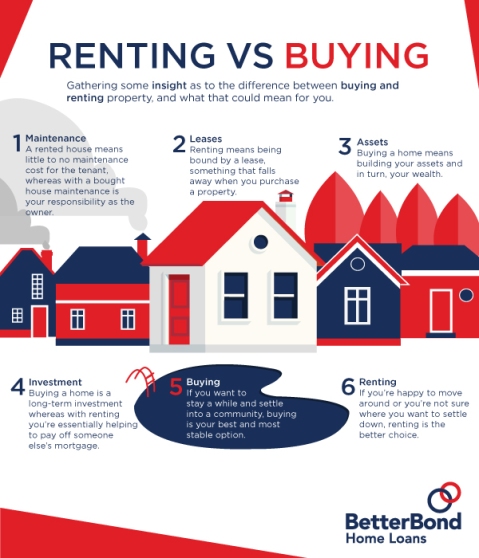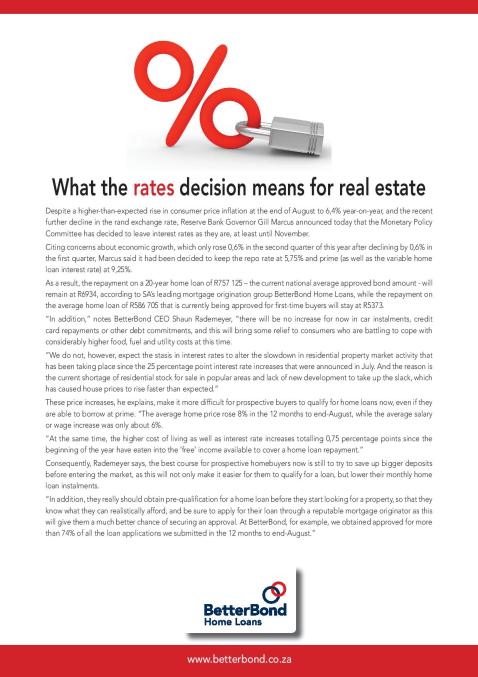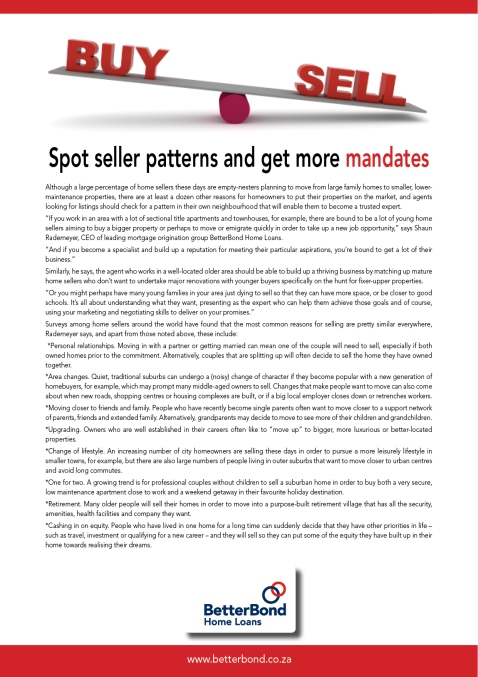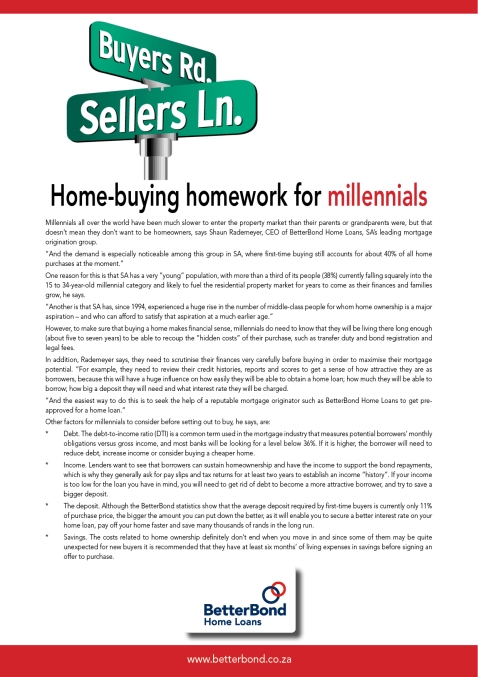Home loan approvals beat the winter chill

The number of home loans being approved by banks is currently growing at a faster rate than at the beginning of the year, despite the fact that the winter months are usually the slow season for home sales and bond applications.
“This may change in the wake of the interest rate increase that took place at the end of July,” says Shaun Rademeyer, CEO of South Africa’s biggest mortgage originator, BetterLife Home Loans. “Our statistics show that the year-on-year increase in the number of loans being approved has risen from a steady 1% in the first few months of 2015 to 2% in the past two months.” The faster rate of growth, he says, follows continued increases in the number of home loan applications being submitted by prospective homebuyers, and continued decreases in the number of applications being declined by the banks.
What the stats are saying
The BetterLife Home Loans statistics, which represent 25% of all residential mortgage bonds being registered in the Deeds Office, show a year-on-year increase of 3,2% at the end of July in the number of home loan applications being submitted. The number of applications being declined by the banks fell by 11,7%, following a 15,6% drop in the previous 12 months.
“The picture this paints is of a market that is in healthy equilibrium at the moment. While maintaining strict credit qualification criteria, the banks are keen to lend now and expand their home loan books, meaning a bigger percentage of prospective homeowners are able to qualify for loans”, explains Rademeyer. “However, it must also be said that prospective buyers still have a far greater chance of their loan being approved if they apply through a reputable mortgage originator like BetterLife Home Loans. We have a success rate of 75%, compared to the overall average current approval rate of 60%.” He also says that although the July rate increase and another small rate increase expected later in the year will probably dampen home price growth, they are not expected to significantly slow demand.
“As it is, both lenders and buyers have demonstrated continued confidence in real estate over the past two financially trying years for the economy. That is reflected in the fact that the average home price has risen by over 14% during this period to R953 000, and the average approved bond amount by the same percentage to R788 000.” Over the same period, he notes about 47% of home loan applicants were first-time buyers, and the average home price paid in this sector of the market rose by almost 8% to R648 000, while the average approved bond amount increased by 9% to R601 000.
Further analysis of the latest statistics also reveals that the upper end of the market continues to hold its own, with 28% of all home loans formally granted by the banks in the 12 months to end-July having been for more than R1 million, compared to 27% in the previous 12 months.
Visit http://www.betterlife.co.za/ for more information.
How to pick the right agent
There are very few things we buy and sell that are worth more than a property, so whether you are selling your lifetime home or an investment apartment, finding the right estate agent to work with is essential.
And research is a critical first step when making that choice, says Shaun Rademeyer, CEO of BetterBond Home Loans, SA’s biggest mortgage origination group.
“There are many different agencies, and you should look at a few to get an insight into how they work. Since the agent you choose is going to represent you and your property, it is important to check that he or she knows your area well and what other properties there have sold recently or are currently for sale.
“An agent who really knows the local scene will be able to assess your home as it sits in the market, alongside similar properties, and give you invaluable help when it comes to setting an asking price. He or she will be able to give you a thorough snapshot of the market in your area and surrounding areas, and will also know about schools, transport and other features that will be appreciated by prospective buyers.”
Secondly, he says, you should only work with an agent with whom you feel comfortable. “You will need to be very honest with your agent during the selling process so need to choose someone you feel you can communicate with easily and who is ‘in tune’ with your expectations.”
Thirdly, Rademeyer says, you should always check results and references before you decide to work with a particular agent. “Ask for the hard facts about properties the agent has sold recently, including actual prices achieved compared to asking prices, and how long the homes were on the market. You should also contact recent clients and ask for their feedback on the agent’s performance.”








